myCILEx
myCILEx
Welcome to myCILEx
CILEx’s exclusive members area

myCILEx provides you with information on the work CILEx is doing on behalf of its members.
For the latest branch events in your area, visit: www.cilexbranches.org.uk
‘When are you going to apply to become a judge?’
Emma Davies FCILEx writes:
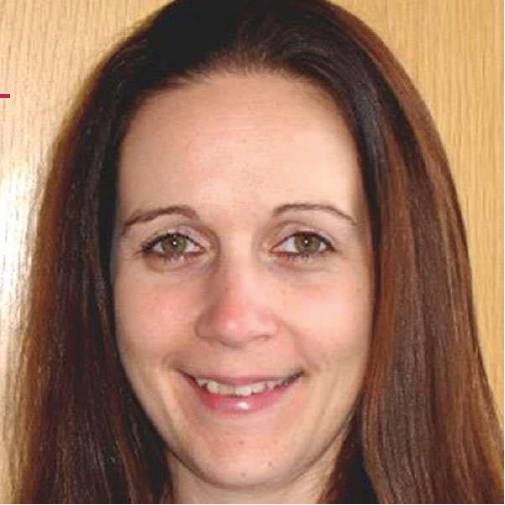
This was the question Nigel Reeder, the chief executive of the Judicial Appointments Commission (JAC), asked me before I’d sat down at the CILEx President’s dinner last year.
If I’m honest, I’d never really considered a career within the judiciary. I was aware that Chartered Legal Executives (CLEs) were eligible for various roles, but I had assumed, wrongly, that because I do not have a background in family or crime and practise in-house in a rather niche area of law (regulatory), my chances of getting my foot on the first rung of the judicial ladder were extremely limited. Fast forward two and a half hours and three courses later, and I went home to do my research.
First step was to visit the JAC’s website and take the three eligibility tests. The ‘Am I ready?’ tools help you to assess qualifications, character and suitability for a career in the judiciary.
CLEs are eligible to apply for the following: deputy and district judge (civil and magistrates’ courts); judge of the First-tier Tribunal; employment judge; road user charging adjudicator; and other adjudicators.
Any candidate must be of suitably good character. Finally, the suitability questionnaire seeks to ascertain what decisions you would make in situations you may face as a judge. After successfully passing all three tests, I went to see what was out there.
For a start, I just did not appreciate the vast number of tribunals - there are some 20 First-tier Tribunals and four Upper Tribunals - and the scope of work that is undertaken. Nigel mentioned that a current high court judge had started his judicial career as a parking adjudicator. After researching all there was to know about parking adjudicators and the process, I was quietly confident that I too could fulfil this role. Would I prefer to sit alone as a deputy district judge, or maybe I would be more suited to a tribunal panel?
Recently, I spent the day with Nigel and his team at the JAC offices talking all things judicial. I was surprised at how small the team actually is considering the number of applications they process for each exercise. A recent deputy-districtjudge exercise attracted 1,500 applicants for 100 positions. Not surprisingly, the JAC makes good use of technology to process the high number of applications. In some cases, selection involves candidates completing a multiple-choice test online. Other selection methods include role play and the completion of a self-assessment application form.
I was fortunate to observe a circuit judge panel interview. The candidate is given 45 minutes to review a court scenario and plan how they would manage proceedings. The candidate then goes before a panel and is questioned on the scenario for 30 minutes by a judge, who is a member of the panel. A 30-minute interview follows, the candidate is then excused and the panel deliberates. It wasn’t as daunting as I had expected!
The JAC is looking to diversify the judiciary, and where better to look than to CILEx, with our diverse range of members? So, empower yourself with knowledge and have a look at what’s out there; I certainly haven’t ruled out an application to become a judge!
From time to time, the JAC also invites potential candidates to take part in ‘dry runs’ , which are used to test each part of the exercises; what better opportunity to have a go at the application process, see if this is something for you, and identify any areas for development? To register your interest, e-mail : DryRunVolunteers@jac.gsi.gov.uk
CON29DW updates from DWSN
The content of the Law Society’s CON29DW has been updated to reflect changes to legislation impacting the water industry (see also page 22 of this issue). The Drainage and Water Searches Network (DWSN) has shared these changes with CILEx. A briefing note and other documents (see below) will provide members with the most up-to-date information available when advising their clients on the impact of water and waste water networks in relation to property purchases.
CILEx has a good relationship with DWSN, and if members have any comments or suggestions, we would be happy to ask DWSN to consider them. Please e-mail Maria Seale at: mseale@cilex.org.uk with your comments or suggestions.
- CON29DW changes, incorporating SuDS and transferred pumping stations, available here
- Drainage and Water Enquiry, available here
- Updating the CON29DW, DWSN information release, 17 May 2016, available here
FAQ
Q: I am a Chartered Legal Executive, with nine years’ post-qualification experience in litigation. Can I charge out at Grade A rates?
A: Yes. Following our submissions to the costs committee, which was set up to review the guideline hourly rates in 2014, it was accepted that Chartered Legal Executives were able to recover costs at the same level as solicitors once they reach eight years’ post-qualification experience. The Statement of Costs (summary assessment) form N260 has also been amended to reflect the position.
Walk to support access to justice: an update
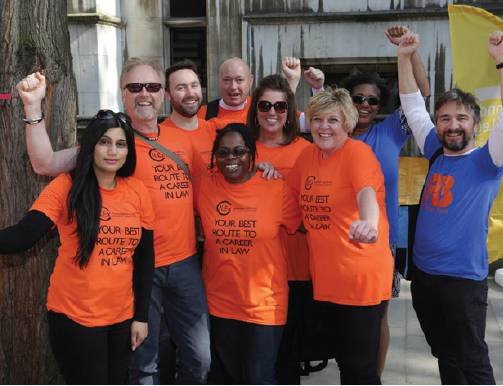
London Legal Walk
CILEx staff took part in the London Legal Walk 2016 in May. London Legal Support Trust (LLST) estimates that when all funds have come in ‘the walk will have raised more than 2015’. As the fundraising pages stay open for three months and funds continue to arrive, the LLST will announce a final figure in September/ October.
Preston Legal Walk
Rachel Stevens, chair of the Greater Manchester CILEx branch and a trustee of the North West Legal Support Trust (NWLST), took part in the Preston Legal Walk on 25 April 2016: NWLST is a grant-making charity, which raises and distributes funds to support free legal advice services and access to justice for all in the North West of England. The trust covers a wide area that includes Cumbria, Lancashire, Merseyside, Cheshire and Greater Manchester.
The charities supported by NWLST help to facilitate and support access to justice for the poorest, most vulnerable and most disadvantaged members of society. They provide free legal help to people facing problems, such as homelessness, debt, employment, family issues, mental health problems, discrimination and injustice, and they desperately need funds to support their work. Receiving the legal advice they need makes a huge difference to these people’s lives.
NWLST is part of a network of seven legal support trusts across England and in Wales, working with the Access to Justice Foundation to support pro bono and advice agencies, ensuring that funds can be distributed where needed most throughout England and Wales. The legal support trusts arrange ‘legal walks’ all over England and Wales. Walkers are encouraged to obtain sponsorship for taking part in the walks, and the sponsorship is then used to support local legal advice centres.
This was the first Preston Legal Walk, and was attended by various law firms and students. The Lancashire CILEx branch also took part in the walk; the walkers included Sara Williams, Victoria Marsh, Lisa McLachlan, Diane Barry and Louise Johnson.
The walk commenced at the Preston Combined Court Centre, followed the River Ribble and ended at the University of Central Lancashire. The event was a huge success; it was a beautiful day to walk around the city.
Further information is available from here.
.
Meet the CILEx Benevolent Fund trustees
Simon Wells, lay trustee and vice-president of the CILEx Benevolent Fund, introduces the trustees who oversee the fund:
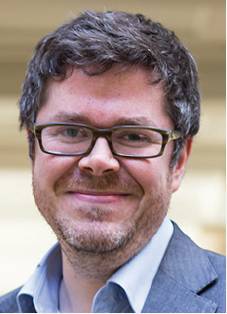
Current occupation: Technology and communications officer , Inner Temple.
Past experience: My background is in membership bodies, starting in London 10 years ago at the British Academy, the national academy for the humanities and social sciences. After that, I moved to the Honourable Society of the Inner Temple, working initially on scholarships and support schemes for young barristers-to-be .
Best thing about being a trustee: Knowing that we are in a position to give people some breathing room at a time when, because circumstances have conspired against them, they are in a really difficult situation.
What would you like to see the Benevolent Fund achieve in the future: We’d like to have a higher profile, and for more CILEx members to be aware of who we are and what we do. Most importantly, I’d like to see us in a position to help a greater number of applicants.
Interests and hobbies: I’m an enthusiastic amateur street photographer amid the wilds of Hackney. I particularly like working with black-and-white film, and I dabble in a little bit of portraiture too.

Current occupation:
Consultant with Alexander JLO Solicitors
Past experience:
I was the longest serving council member of CILEx, stepping down, in 2004, in compliance with the articles of the Institute, and at the relevant AGM being appointed an honorary vicepresident of CILEx. I have also been a trustee of the Benevolent Fund since the 1980s, and am additionally a trustee of another charity, NBFA Assisting the Elderly. I am also a volunteer with the Personal Support Unit: the charity which assists litigants in person.
Best thing about being a trustee: Being able to help others and to see the way the fund improves their quality of life, particularly those who are CILEx pensioners.
What would you like to see the Benevolent Fund achieve in the future: For the Fund to become better known in order to both have more legacies left to it and to attract more donations: all so that we can assist more people.
Interests and hobbies: I am the deputy president of the Liberal Democrat Lawyers Association, having in the past stood for parliament and at local council elections. I enjoy the arts – all kinds – and gardening is my exercise.
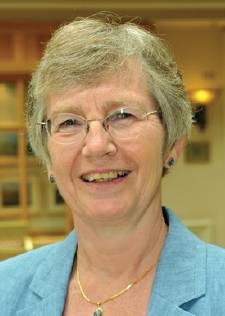
Current occupation: Semi-retired , but I do trustee work and chair committees of voluntary organisations.
Past experience: Formerly the CEO at CILEx and, by background, I’m a solicitor now non-practising . I am very proud to be an honorary Fellow of CILEx. Much of my career has been out of private practice and spent supporting the legal profession and legal services through policy development and law reform work, as well as managing and advising those individuals and organisations that provide education, support and advice to the profession.
Best thing about being a trustee: It’s a privilege to be able to support CILEx members when life events throw them off course financially. Mishaps can happen to any of us.
What would you like to see the Benevolent Fund achieve in the future? It’s always been a struggle to get information about the Benevolent Fund across to members, and where we successfully do so to provide as much advice as we would want. Sometimes, the right advice is more important for the longer term than the financial help, which is mostly a short-term measure. The trustees are looking at both these issues right now.
Interests and hobbies: Now I have some spare time, I’m enjoying sorting my garden; travelling; looking after two lovely grandchildren when needed; helping out with the local archaeology society and cricket club; and doing research for a book I fancy writing.
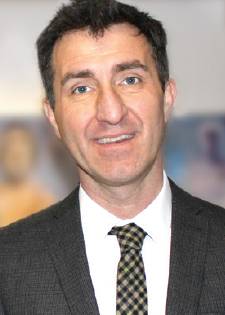
Current occupation: Independent public relations consultant
Past experience: I trained as a journalist, working in local newspapers, and motoring and business-to-business publications. From there, I moved into PR, helping all kinds of organisations communicate more effectively with their audiences, including working on a pro bono basis with charities: something that I’m now helping to do at CILEx Benevolent Fund. Over the years, I have worked with everyone from giant multinationals, like GE, to interesting one-man operations.
Best thing about being a trustee: Sometimes, we are in position to genuinely help members get their lives onto a much more positive footing, whether through financial assistance or advice. What could be more rewarding?
What would you like to see the Benevolent Fund achieve in the future: I’d like us to help more members in more ways, and for us to become the automatic first port of call for anyone in the profession who needs independent help and advice.
Interests and hobbies: I play keyboard and guitar in a band; I like to go running; and I just get a lot of joy out of exploring the world and seeing what I can find.
- If you have any questions about CILEx Benevolent Fund, e-mail here
We are looking for a new trustee to join CILEx Benevolent Fund. Ideally, we would like to hear from someone who is a current, working CILEx member. S/he must be able to give up a few hours every month to work with the board of trustees in assessing applications for support, and also take part in regular face-toface meetings, which usually occur around once a quarter in Central London.
The role is unpaid, but you will be able to have a strong say in the future of the charity and the help that it provides to CILEx members.
For further details, please contact here
.
CILEx EPA application success
CILEx has been accepted as an end point assessor (EPA) for the paralegal and Chartered Legal Executive (CLE) Trailblazer apprenticeships. CILEx will be added to the Register of Apprentice Assessment Organisations when this is next updated by the Skills Funding Agency and, as a result, CILEx will be able to act as an EPA for the Paralegal Trailblazer and as the only EPA for the CLE Trailblazer.
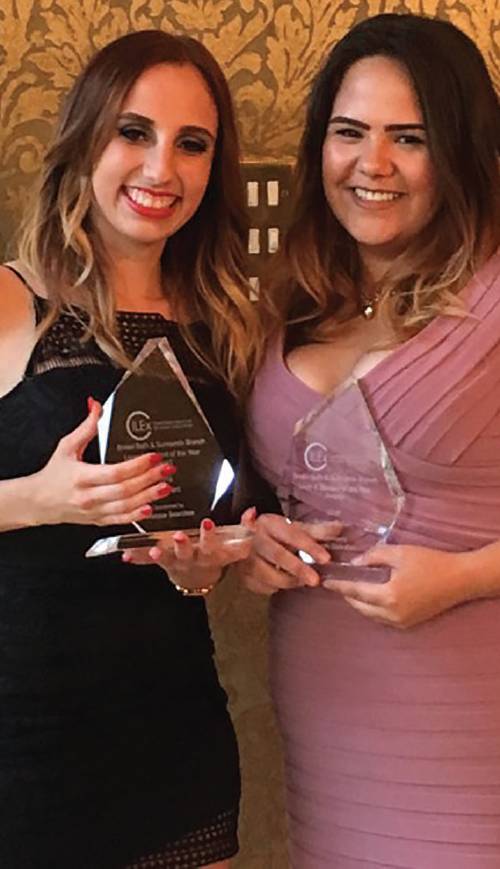
Bristol and Bath branch CILEx exam awards
At the CILEx Bristol & Bath branch Summer Ball on 3 June at Bristol Zoo Gardens, two awards were given: one for the highest mark in a Level 3 paper in Bristol; and the other for the highest mark in a Level 6 paper in Bristol. Lyons Davidson employees won both awards.
The highest mark for a Level 3 paper was won by Jess Kent in the property litigation department, who got the highest mark in a contract examination; and the Level 6 paper award was won by Amber Sutton in the family department for the family examination.
Obituary
Alistair Whyte, head of the residential department at Coodes Solicitors, writes:
Lesley Kendall was one of those people who got things done. As a conveyancer with Coodes Solicitors for 16 years, she had a reputation, among clients and colleagues, for straight talking and attention to detail, which meant that clients’ needs were always put first and, in the stressful situation of buying and selling family homes, her ‘no-fuss and noconfusion’ approach (to quote a client) was just one of the many qualities that made Lesley a fantastic conveyancer.
A Fellow of the Chartered Institute of Legal Executives, Lesley joined Coodes’s Newquay office in 2000, and only moved to a new role within the department in the Truro office a few years ago.
Outside of work, Lesley liked to unwind by taking in the best of the local art and natural world: from walking the Cornish coastline to visiting the theatre and art galleries (Penlee House in Penzance being her favourite).
In recent times, Lesley’s illness prevented her from walking her beloved Cornwall, but she lost none of her wit and enthusiasm for life and work, continuing to work until the medical professionals - quite literally - had to stop her from coming in to the office . Lesley died on 8 May, and will be missed by all who knew her.
- Anyone wishing to do so should make a donation to the Cove Macmillan Appeal in Lesley’s memory.
Clarification
In ‘myCILEx’ (2016) June CILExJ p43 the article ‘Natalie Woods named Wales’ CILEx student of the year’ was incorrect and should have clarified that annual awards are made by CILEx Cardiff & South East Wales branch in recognition of CILEx students. The full list of the 2016 award winners is as follows:
- Brightlink Learning Student of the Year: Sian Beaumont
- Cardiff & Vale College Level 6 Student of the Year: Jennifer Morgan (McGarvey Immigration and Asylum Practitioners Ltd)
- Cardiff & Vale College Level 3 Student of the Year: Cherrie Powell (Glamorgan Law, Caerphilly)
- Cardiff College Online Level 6 Student of the Year: Kelly Matthews (Trowers & Hamlins LLP, Exeter)
- Cardiff College Online Level 3 Student of the Year: Catrin Davies (Spicketts Battrick, Cardiff )
- CILEx Law School Level 3 Student of the Year: Robert Yabsley (Lyons Davidson)
- Coleg Gwent Level 6 Student of the Year: Clare Reynolds (Gartsides Solicitors, Newport)
- Coleg Gwent Level 3 Student of the Year: David Newman
- Lexium Legal Level 6 Student of the Year: Natalie Woods (Watkins & Gunn)
- Lexium Legal Level 3 Student of the Year: Emma Wheel (Howells Solicitors)
NOTICE IS GIVEN that the ANNUAL GENERAL MEETING of The Chartered Institute of Legal Executives will be held at 3.45pm on Thursday 21 July 2016 at Park Plaza Victoria London, 239 Vauxhall Bridge Road, London, SW1V 1EQ
Anyone who is registered with The Chartered Institute of Legal Executives (CILEx) may attend the Annual General Meeting and speak on the various items of business, but only Fellows are entitled to vote on the Resolutions.